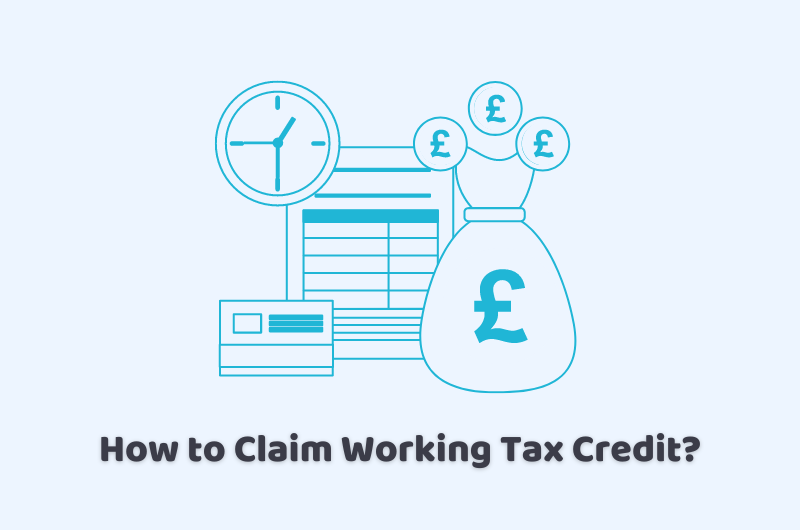
22/05/2023tax , Tax Issues , Tax News and Tips , Tax Saving Tips , Taxation
Due to the fact that the universal credit has replaced the tax credits, people have started to make new claims to get the most benefits from the tax credit. However, an important thing to consider here is that you will have to be mindful of checking what are the kind of tax credits that you are already getting before you aim to claim the renewal to get the benefits further. There is no doubt that there is a range of advantages to working tax credit. If you want to claim the working tax credits, the process of applying will remain the same just like it is for any other tax credit, however, one individual can not be in a position to be eligible for more than one tax credit.
Furthermore, for the cases of beginners, the details will be different than the ones who are already getting benefits of other tax credits. If you are a beginner who is seeking information and help on how to claim working tax credits, you are on the right page. As this guide will help you to gather basic and detailed facts about how you can make a claim for the working tax credits and what are the possible things to consider before you initiate the process of applying.
Talk to one of our intelligent and clever professionals to get your further queries about working tax credit in the UK. We will ensure to come up with the best possible solution.
How to Make a Claim for Working Tax Credit?
The most popular and easy process if you plan to make a claim for the working tax credit is to get in touch with HMRC over a phone call by using the tax credit helpline. This must be done right after you are completed the process of gathering information and you have decided to finally make a claim. This is because of the fact that to make a successful claim and process it by HMRC can take a period of around six weeks.
Moreover, you must record the time and date of making the claim to keep track of the required time period. This is also important that you take the name and details of the relevant professional that spoke to you over the phone call. These details will be required in the application later in the process.
Things to Consider Before You Apply
There is a range of required details and documents when it comes to the claim call. So the best and recommended practice is to keep all the relevant details with you before you aim to speak to the HMRC for the sake of the claim. You will also be based on how much earnings you make within the duration of one tax year. You can keep the P60, P45, and your payslip to work out these details.
What If You’re Part of a Couple?
In the case of being a married person who is a part of a couple, you will have to make the claim differently. This is because a married person will have to make the joint claim and provide the detail of the spouse along with your own details. HMRC will consider the income of you and your spouse in order to make the claim successful for your case. In the case of a joint claim, your case will be handled differently than the single-person case.
What if You have Children?
If your child is born before the tax year 2017, you are allowed to get the child tax credits for each child until they turn 16. In the case of full-education children, the limit is until they turn 20. Any children after the year 2017 will be getting the child tax credit regularly. In case of the child is under a guide’s custody most of the time or the other parent is looking after the child, the most relevant person should be involved in the process of claim.
How is Working Out Your Income Relevant to the Process?
As it is mentioned in the discussion earlier that your income is included in the process of working tax credits. Because HMRC will look into that to decide how much you are eligible to receive in the form of working tax credits. In case of the claim that is to be made joint for the married couple or the people in a civil partnership, the other partner or spouse will also have to provide the details of their income. HMRC will start working accordingly in this case. You can use your salary slips or forms P60 and P45 to figure out how much you both make within the duration of one tax year.
Getting Help with Making Your Claim
For beginners who often find it a tough procedure to make a claim for the owning tax credits, there is always an option of professional support in order to complete the process. This can be eligible if English does not happen to be your first language, you are partially sighted, you are blind, you are hearing impaired, or you are deaf. In other words, you can say that if any of the mentioned disability is a hindrance in the process of making the claim for you, HMRC will make the adjustments for you.
What Happens After the Claim is Done?
If you are disabled and you are done seeking help from HMRC to make the relevant adjustments, HMRC will also require certain evidence from you to complete the process. A letter will be sent to the relevant person if HMRC requires some more evidence for the process later. You can always use the electronic medium or the posting medium to send the required evidence to HMRC. Most of the claims will take a period of six weeks or less to process the claim.
The Bottom Line
Now that you have gathered a fair amount of information regarding how to claim the working tax credit in the UK, we can bring the discussion towards wrapping up. Working tax credits can be claimed through any medium that is the most relevant to your circumstances. We hope these few minutes of reading will help you to develop a better understanding of how to handle the working tax credit and how will you make a successful claim.
If you seek professional help to learn more about working tax credit in the UK, why wander somewhere else when you have our young and clever team of professionals at CruseBurke?
Disclaimer: All the information provided in this article on working tax credits includes all the texts and graphics. It does not intend to disregard any of the professional advice.



